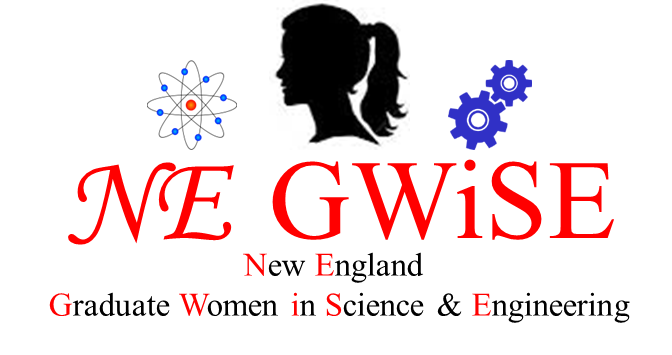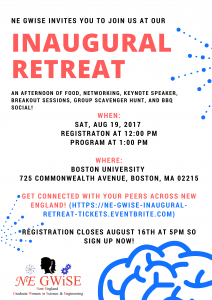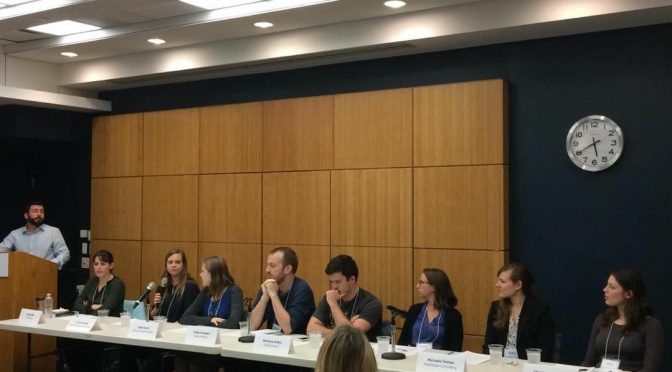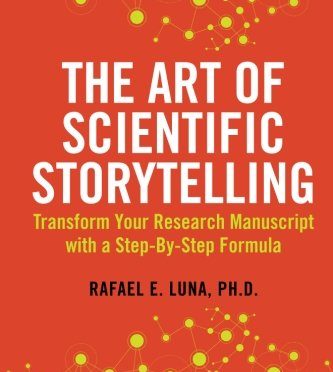In this month’s edition of ICYMI, I’ll be giving you the low-down on a career exploration panel that took place on November 3rd in Sackler 114, sponsored by the GSC, TBBC, and the Sackler Dean’s office. Like every great event at Tufts, there was plenty of cheese, crackers, and booze to go around. Aaron Bernstein (CMP) took the stage as emcee and introduced the eight panelists and their intended career paths, which ranged from teaching to healthcare consulting.
I’ve made you all a little cheat sheet that summarizes the main takeaway for each career path and some of the great resources provided by the panelist that can help you learn more about and prepare for the job. Hopefully one or more of these professions spark your interest and inspire you to join a club, participate in an event, or simply give you something new to think about!
- Joslyn Mills-Bonal (CMP), teaching
Inspired by her great experience at a small liberal arts college, Joz participated in the panel as an advocate for a teaching-heavy career at a community college, liberal arts college, or university.
Teaching experience, which might seem hard to find at Sackler, is critical for preparing you for this job. Take advantage of student seminars and treat them as an opportunity to practice teaching. You can work on your curriculum design skills by getting involved in behind the scenes efforts for the various teaching opportunities you participate in. For example, if you get involved with Biobugs you can also take part in designing the labs.
It’s important to think about what kind of institute you want to work for- a liberal arts college? A state university? A research I institute? These decisions will inform the steps you take during and after graduate school as you work towards your career as a teaching professor. For example, a postdoc is usually required for a job at a liberal arts school and above, whereas community college professors don’t need a PhD. Also keep in mind that if you don’t want to continue to do research, your publication list isn’t so important. If you do want to continue to do research, however, you need to keep in mind that prolific publishing is paramount.
Opportunities/resources of interest:
If you’re interested in any of the above opportunities or simply want to learn more about this track, feel free to contact Joz!
- Laura Stransky (CMP), academic/industry science
In academia we aim to better understand some disease or mechanism, whereas those in industry work to make some therapeutic or drug that can be marketed and sold. For both jobs, however, Laura loves the fact that you get the luxury of thinking for a living!
As a graduate student at Tufts, you’re already actively in training for a career as a scientist! To make the most of your time in graduate school, go to seminars as often as possible and learn from how other people present. Remember that for many of the visiting speakers there is a lunch you can attend with the speaker at which you can network and learn about their career path. Take any and all opportunities to write! There are plenty of grants travel awards, abstracts, and conferences that give you the chance to practice writing. By taking mentoring opportunities—volunteering to work with rotating students, for example—you can develop the management skills that are critical to being a good scientist, regardless of whether you’re in industry or academia.
After graduate school you must become a postdoc if you intend to get a job in academia. You need to demonstrate your ability to accrue funding and publish high impact papers. If you’re leaning more towards becoming a scientist in industry, a postdoc isn’t absolutely essential but can certainly get you started a little higher on the ladder. Furthermore, a postdoc before industry can help you expand your skills, fill in any gaps that you may have, and perhaps give you the opportunity to get involved in more translational research and develop project management skills.
- Kayla Gross (CMDB), science communication
This field encompasses more than just one kind of job—you can be a medical writer, a publisher, a communicating officer at a brand, or even a journalist. While at Tufts, find ways to improve and practice your writing and communication skills! Look for as much feedback as you can on your manuscripts, abstracts, posters, presentations and even committee reports to help you sharpen your skills and hone in on what needs to be improved. You need to practice adaptability to different scientific fields, since as a writer you are unlikely to be limited to just one topic. Furthermore, you need to be able to speak to those who aren’t well versed in the field you are writing about.
For a job in science writing, there is no hard and fast rule on whether you need to postdoc or not. The only track in which working as a postdoc is encouraged is in being an editor. If journalism is your goal, keep in mind that making the shift from grad school to journalism can be tricky—you may have to do some freelance writing for a while to build up your portfolio and break into the field.
Opportunities/resources of interest:
- Join the INSIGHT newsletter/blog! You can participate as much or as little as your time permits, and it’s a great opportunity to practice your writing and communication skills. Contact Kayla to join!
- Tufts also has a collaboration with Emerson College in which you can work with an undergraduate communications student whose project is to assemble a science-centric media piece in which your research is explained to the general public. This is a great way for you to practice making the science that we think so deeply about a digestible subject for the general public!
- Andrew Hooper (Neuro), science policy
A job in science policy often involves advising policy makers on important scientific matters. This is a great way to have impact on our government and every day lives by helping educate people, especially politicians, who often have very minimal science knowledge. Because part of the job also often involves putting budgets together, it’s important for you to have some financial savvy. Finally, communication skills are essential, as you’ll be translating complicated scientific concepts to people completely untrained in the field.
There are many organizations that offer policy fellowships that can support you while you work in D.C. and learn the ropes, most of which require a postdoc. Applications are usually due in January and start dates are in the fall.
Andrew suggested you contact him if you’re interested in science policy!
- Matthew Kelley (Neuro), data science
Data science merges statistics, math, and programming to help get insight from large databases, generate correlations, and make predictive models.
Hard skills you need for a job in data science include statistics, programming—many things you are already doing regularly as a PhD student. It’s important to learn how to code, which you can do on your own! While you’re at Tufts, try to integrate data science in your PhD project to practice applying your skills.
Opportunities/resources of interest:
- The Insight Science Data Fellowship, designed to bridge the gap between a non-computational graduate degree and a career in health data science (http://insighthealthdata.com/). In this program, you’re funded for 7 weeks to learn from industry leaders and even interview with some of the top companies in the industry!
- Check out the newly formed Data Science Club—there have only been two meetings so far so get in early! The club plans on bringing in speakers and learning applicable skills together.
- MIT edX has a course on analytics: https://www.edx.org/course/analytics-edge-mitx-15-071x-2
- Jaclyn Dunphy (Neuro), entrepreneurship
A job as an entrepreneur is exciting because it involves brainstorming and sharing ideas with other people to start something completely novel. A job at a start-up company might seem high risk, but it offers the opportunity to make a big impact, as teams are usually small. If you’re interested in being a “big piece of a small system,” this field might be for you!
Firstly, to be more proactive, reach out to others—contact experts who can assess your idea and help you decide how feasible it is. Secondly, demonstrate leadership skills! Take the lead with rotation students and get involved in student-run groups where you can take some charge! Thirdly, practice your interpersonal and networking skills. You must practice the formula to successful networking: reaching out to your person of interest the day after meeting them, be it via e-mail or LinkedIn, and setting up a time and day for a coffee meeting where you can learn more about their job and solidify your professional relationship. To get started as an entrepreneur, the best thing you can do is… be an entrepreneur! Think of an idea and start a company!
Opportunities/resources of interest:
- Cross register for classes in the entrepreneurial management program at the Medford campus
- Engage in IDEAS competitions
- Participate in Mass Challenge!
- Venture Café: A networking event that happens every Thursday evening at the Cambridge Innovations Center (1 Broadway, Kendall Square, Cambridge MA) where you can have a (free!) drink and socialize with other entrepreneurial-minded people. This can be a great opportunity to find collaborators or just bounce your ideas off other people in a social and friendly environment.
- Michaela Tolman (Neuro), healthcare consulting
Michaela aptly nicknamed healthcare consulting “rent-a-brain”—a perfect summary for a job in which you are hired to consult non-experts in a healthcare related venture. Many of us are in biomedical research because we want to help people, but as we all know, research can be slow and it might take years or even decades before a discovery you make in lab actually benefits someone in the clinic. As a consultant you are involved in helping bring people the best healthcare much more rapidly.
It’s extremely important to develop interpersonal and networking skills for a successful career in consulting! The job involves a lot of interactions with non-scientists and you need to be able to fit in and make them feel comfortable. It’s also important that you have business acumen and learn the jargon of the business world. Do you know what people are talking about when they say percent market share, market size, or competitive landscape?
To go on consulting interviews, you have to be able to say that you can graduate within a year. Postdocs are not recommended as consulting firms are typically looking for someone fresh out of graduate school. It’s also critical that you know how to do a case interview, which typically the process one goes through before getting a consulting job.
Opportunities/resources of interest:
- Join the case study groups, which take place every Monday!
- Participate in TUNECC- this is a highly attended case-competition event at which you can show off your consulting skills and get the attention of potential hirers!
- Come to Biotech Buzz and Tufts Advisory Partners (TAP)!
- Michaela also had some book recommendations, including Case Interviewing Secrets and Case In Point.
- A website that might interest you is Seeking Alpha.
- The “Mini MBA” program at Harvard can be great for your resume
- Just like for any other career path, network, network, network!
- Christina McGuire (Biochem), venture capital
Though there are venture capital firms that solely exist to provide funding for start up companies that already have a formulated product or idea, Christina’s goal is to find a job in a venture capital company that creates ideas in-house. To get that kind of position, you need to have a deep understanding of science and you definitely need good analytical skills. Continue to practice reading primary literature to develop these skills and also keep in mind the importance of acquiring business acumen. Often times, to get a job at a VC firm, you need to get involved in business or consulting first. Demonstrate your entrepreneurial abilities by getting involved in successful projects and familiarizing yourself with the business world, much like when you are preparing for a career in entrepreneurship and consulting!
Opportunities/resources of interest:
- Tufts Biomedical Business Club (TBBC) and Biotech Buzz.
- Christina’s book recommendations: Venture Deals by Brad Feld and Jason Mendelson.
- Subscribe to: Fierce Biotech and XConomy
Overall, the event was a great success and attendees walked away with a wealth of knowledge and tips for how to better prepare for a slough of career options. A major recurring theme throughout the night was the importance of networking, so as intimidating as it may seem, the next time you hear about a networking event, grab a friend and go! You never know if the next person you meet will help open the door to your dream career.







